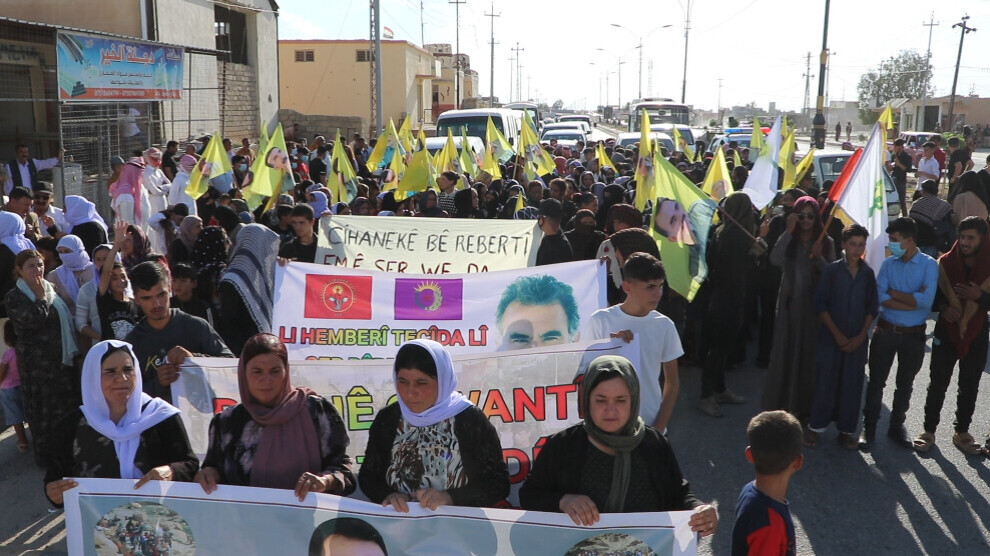People of Shengal demand freedom for Abdullah Öcalan
Kurds are taking to the streets all over the world in the wake of reports that Kurdish leader Abdullah Öcalan received letters of threat from the administration of Imrali Prison.
Kurds are taking to the streets all over the world in the wake of reports that Kurdish leader Abdullah Öcalan received letters of threat from the administration of Imrali Prison.

People took to the streets in the Yazidi town of Shengal (Sinjar) in southern Kurdistan (northern Iraq) to demand freedom for Kurdish people’s leader Abdullah Öcalan, who has been held in incommunicado detention for over two years.
Concerns over the conditions of Abdullah Öcalan increased after reports that Öcalan received threatening letters from the Turkish state and administration of the Imrali Island Prison where he has been held since his handover to Turkey as a result of an international conspiracy in 1999.
During the march organised by the Autonomous Administration of Shengal, residents displayed banners demanding an end to the isolation and threats against the Kurdish leader.
The march was followed by a rally where speeches were held, pointing to the importance of Öcalan’s freedom for the peoples in the region.
In a statement on behalf of the Autonomous Administration of Shengal, Riham Hesen stated that the Yazidi people survived the genocide and can live on their own land today thanks to the ideas of Abdullah Öcalan.
Riham Hiço, a member of the Yazidi Women’s Freedom Movement (TAJÊ) Coordination, condemned the aggravated isolation imposed on Öcalan, who has not been heard from for over two years. “Concerns have increased after the latest reports that Öcalan is threatened with poisoning. Everyone should reject this and stand up for the leader,” she said.
Sara Botan, Spokesperson of the Yazidi Youth Union, expressed their rejection of the threats against Abdullah Öcalan.
Botan called for an enhanced struggle to break the isolation of Öcalan and ensure his freedom.
Background
Shengal (Sinjar) is the last contiguous settlement area of the Yazidi community. Thousands of Yazidis were murdered and thousands of women and children were taken prisoner in the 3 August 2014 onslaught on Shengal by ISIS militants. While ISIS gangs began murdering Yazidis in Shengal, the Peshmerga left, leaving the Yazidis behind. HPG-YJA Star and YPG-YPJ fighters came to the Yazidi people's aid in the face of ISIS aggression.
After months of resistance, the fighters who saved the Yazidi people from a larger genocide liberated Shengal. After the liberation of the city, the HPG and YPG/YPJ subsequently withdrew in 2017. People who returned to their land after Shengal's independence reformed, established defensive units and built their institutions.
UN bodies and the European Parliament have recognised ISIS crimes as genocide, as have Armenia, Australia, the US House of Representatives, the Scottish Parliament and the German Parliament (Bundestag).